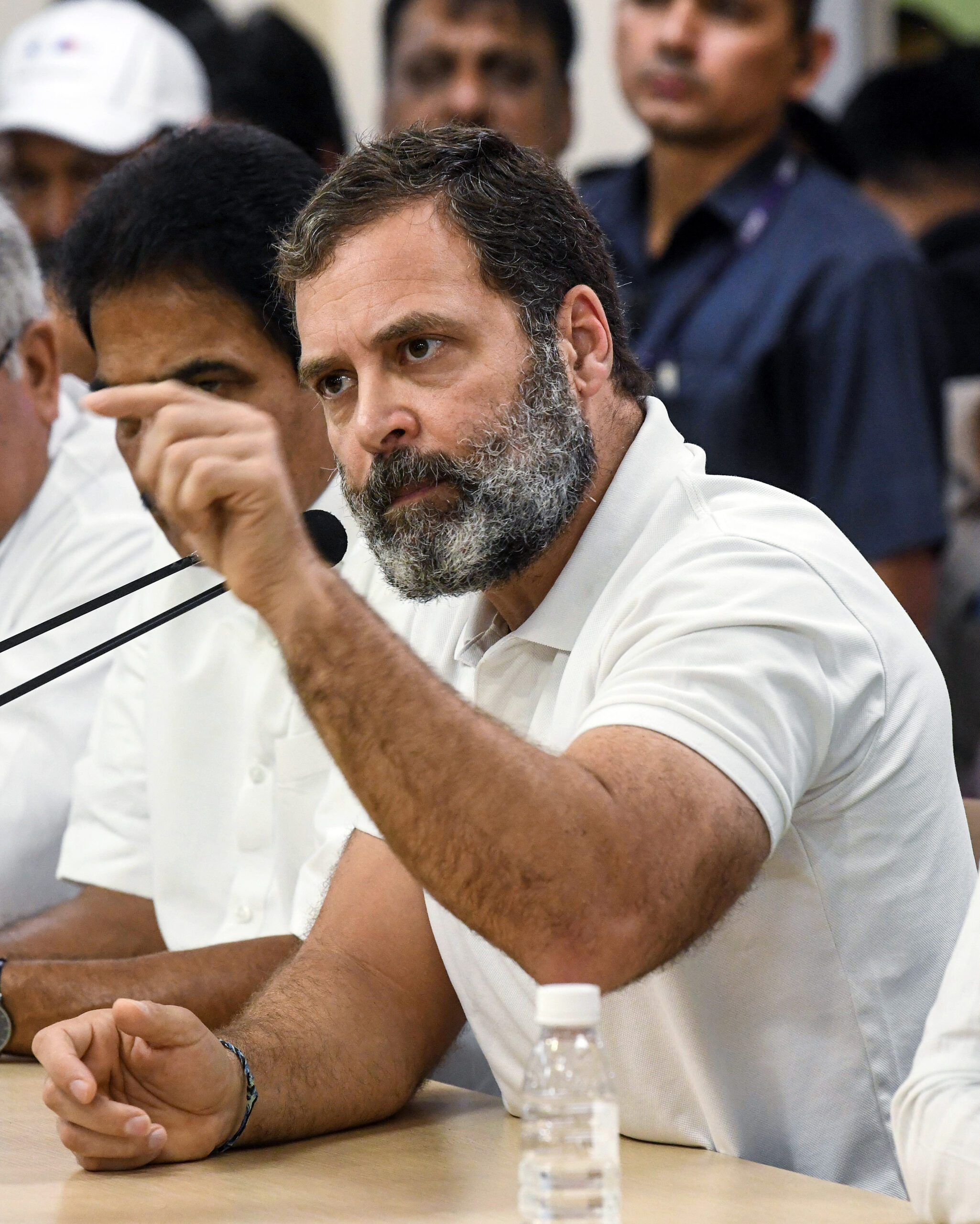The Supreme Court ruling staying the conviction of Rahul Gandhi in a defamation case, has not only provided a political lifeline to the former Congress president, but also casts a reflection on the Surat court that convicted him as well as the higher courts that failed to provide relief. The Apex Court observations are significant since they also question the failure of the convicting judge to give ample reasons for handing out a two-year sentence, the maximum punishment in a defamation charge.
The injunction implies that Rahul Gandhi’s disqualification as a member of the Lok Sabha would be revoked, and he shall be eligible to contest the next Parliamentary poll. The Lok Sabha’s secretariat may also have to review its procedural issues, which come into automatic play on the conviction of a member, without giving him a chance to get a reprieve from a higher court.
The Supreme Court verdict on the matter has come as a boost for the Congress cadres, who have been seeking justice for their leader in what they construed as a deliberate attempt by the opponents to trap him in a legal issue, ahead of the Lok Sabha election.
On his part, Rahul had reconciled to the consequences of his disqualification and had even vacated his official bungalow on Tughlak Road. It is to be seen whether he moves back to his old house, or decides to fight the next battle from 10, Janpath, where he had shifted following his arbitrary conviction and disqualification.
However, it needs to be pointed out that despite his disqualification, Rahul had defined a new role for himself, which he would continue to play in national politics. This role virtually means that even though his supporters would want him to be the Opposition’s face as the principal challenger to the Prime Minister, he would rather settle for playing second fiddle to the Congress president, Mallikarjun Kharge.
Kharge had in Bengaluru, and before that in Chennai, clarified that the Congress was not in the race for Prime Ministership, and its main aim was to ensure that Constitutional provisions were upheld, to save the nation. The veteran politician, while shielding the Gandhis from a direct BJP onslaught, had provided hope to ambitious leaders from other parties, who as a part of INDIA (Indian National Democratic Inclusive Alliance) would be contesting the Parliamentary polls against the ruling dispensation.
Thus, it is evident that Rahul along with the top Congress leadership would be playing the role of a Kingmaker rather than attempting to be the King himself, in the event of the BJP and its partners losing the election, which appears most improbable at this juncture. The grand old party’s game is also to win in as many state Assembly polls as possible, and subsequently enhance the numbers in Parliament to re-emerge as the primary political outfit in the country.
In order to do so, the Congress would be thinking of various blueprints in its march forward. Since Kharge has put the Congress out of the race for Prime Ministership, the party would look forward to supporting any arrangement that could help in dislodging the NDA from power.
Its model for supporting a non-Congress-led government could be similar to the previous occasions when the party propped up leaders, only to bring them down after a while, and at an appropriate political time. For instance, the Congress supported Chandrashekar for the Prime Minister’s position, fully knowing that he had very few MPs on his side, and even Chandrashekar walked into the trap with his eyes open.
In the post-Narasimha Rao period, after the 13-day Atal Bihari Vajpayee-led government crashed on its own, the Congress under Sitaram Kesri helped H.D. Deve Gowda to become the Prime Minister and after pulling him down, put its weight behind Inder Kumar Gujaral. Both experiments did not work very well and facilitated the return to a BJP led government in 1998 and in 1999.
However, what is different now is the fact that the Congress for the first time was reduced to two digits both in 2014 and in 2019. Its very existence had been threatened and it could have never imagined, that it would be out of power at the Centre for nearly 10 years. Therefore, it must have worked out its future strategy, keeping in mind the present political scenario.
The model for forging an alliance would entail that its first objective would be to dislodge the present government through the ballot, and then play an important role in setting up an alternative arrangement, in case the BJP and its allies lose.
The Congress realizes that despite being the largest Opposition party, and perhaps the only outfit which still has a presence in every nook and corner of this country, it has to rise to the occasion. In its estimation, the continuation of the BJP under Narendra Modi for another five years would be detrimental to its own survival, and whatever needs to be done, now was the time to halt that from happening.
In that context, even for the Gandhis, their own ambitions have to be secondary, and thus an alliance which is workable and effective to put up a show of strength to take on the BJP-led coalition, is being seen as the need of the hour. The BJP appears invincible at this stage but the Congress and its allies are prepared to make it into a David versus Goliath fight. Between us.

